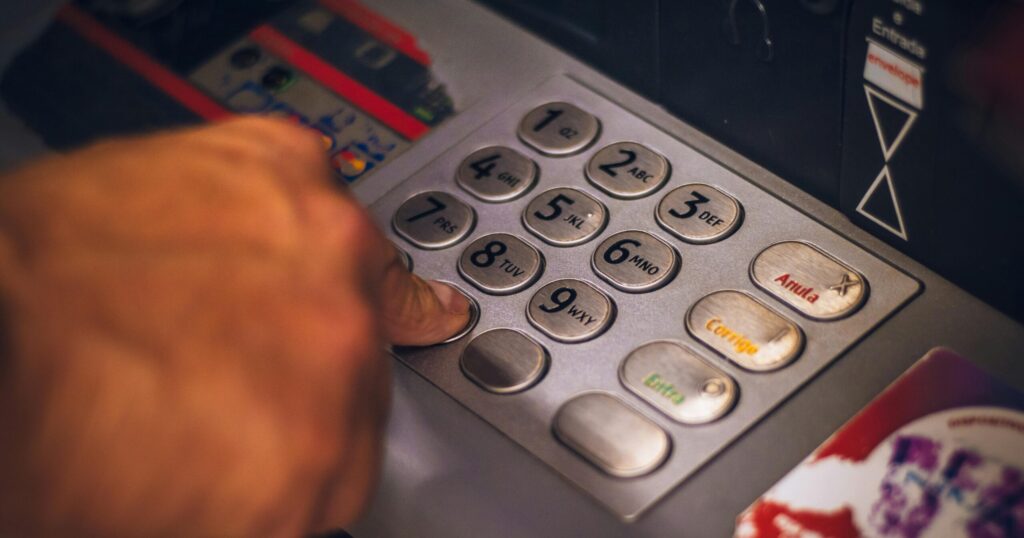When you’re running a small business that handles cash transactions, understanding IRS deposit thresholds becomes critical. Federal regulations require specific reporting when physical currency deposits into your financial institution exceed certain amounts—not to restrict your deposits, but to help combat money laundering and financial crimes.
The key number to remember for 2025 is $10,000. That’s the federal threshold that triggers mandatory reporting requirements for both your bank and your business.
Here’s what this actually means: You can deposit as much cash as you want into your business account. There’s no prohibition on large deposits. However, once you cross that $10,000 mark in a single transaction or related transactions, reporting obligations kick in for everyone involved.
Understanding these thresholds helps you stay compliant with federal regulations, avoid potential penalties, and keep your business operations running smoothly without unexpected complications from financial institutions or tax authorities.
When Do You Need to Report Cash Deposits?
Three specific scenarios trigger reporting requirements for cash transactions:
- Single large transaction: Any cash payment or deposit exceeding $10,000 in one transaction
- Related transactions within 24 hours: Multiple payments or deposits from the same source that total $10,000 or more within a single day
- Related transactions within 12 months: Multiple payments or deposits from the same source that accumulate to $10,000 or more over a year
Thinking about splitting up large deposits to avoid these thresholds? That’s called “structuring,” and it’s a federal crime—even if your money is completely legitimate.
The solution is straightforward: report these transactions properly by including them in your income when you file taxes.
How Do You Report Cash Deposits Over $10,000?
Business owners who receive cash deposits exceeding $10,000 must complete IRS Form 8300 within 15 days of the transaction. This applies whether you receive the full amount at once or through multiple related payments.
The 15-day deadline is firm. Missing it can result in penalties starting at $250 per violation, with much higher fines for intentional failures to report.
What Are Banks Required to Do?
Yes, banks must report large cash transactions. Under the Bank Secrecy Act of 1970, financial institutions are legally obligated to report any cash transaction of $10,000 or more to the Financial Crimes Enforcement Network (FinCEN) by filing a Currency Transaction Report (CTR).
These reports help law enforcement track money movement and investigate potential money laundering, terrorist financing, and other illegal activities. When you deposit more than $10,000 in cash, your bank automatically files a CTR with your account details, Social Security number, and transaction information.
Beyond the federal $10,000 requirement, individual banks often set their own internal deposit limits. These restrictions typically apply to ATM and mobile deposits and vary by account type. Branch deposits generally face fewer limitations than automated channels.
Do Business Owners Have Reporting Obligations?
Absolutely. Any business receiving cash payments of $10,000 or more must report them to the IRS—whether the payment arrives all at once or through multiple transactions from the same customer.
Here’s a practical example: You run a tutoring service and charge $1,500 per month. If a student pays you in cash every month, you’ll need to file a report once their cumulative payments reach $10,000. That seventh payment pushes you over the threshold and triggers your reporting requirement.
Be cautious about transaction patterns near the $10,000 mark. Banks watch for suspicious patterns that suggest structuring—the illegal practice of deliberately keeping transactions just below reporting thresholds. Even legitimate businesses can raise red flags if their deposit patterns appear designed to avoid reporting. The consequences include severe penalties, potential criminal charges, and frozen accounts.
What Qualifies as “Cash” Under IRS Rules?
The IRS definition of “cash” extends beyond paper currency and coins. For reporting purposes, cash includes:
- Physical U.S. and foreign currency
- Cashier’s checks valued under $10,000
- Money orders valued under $10,000
- Bank drafts and traveler’s checks valued under $10,000
Standard personal checks don’t trigger reporting requirements. However, when you combine cash with these monetary instruments in a single transaction exceeding $10,000, the entire transaction becomes reportable.
Why Structuring Is a Serious Federal Crime
Structuring—sometimes called “smurfing”—means intentionally breaking up large cash amounts into smaller deposits to avoid the $10,000 reporting threshold. This is illegal regardless of whether your funds come from legitimate sources or you’ve paid all your taxes.
Common structuring examples that will get you in legal trouble:
- Making three consecutive deposits of $5,000, $3,000, and $2,000 instead of one $10,000 deposit
- Depositing $9,999 multiple times over several days
- Distributing deposits across different banks to keep each under $10,000
The penalties are severe and disproportionate to many other financial crimes. You could face up to five years in federal prison and civil fines beginning at $250 per violation. Intentional violations carry fines up to $25,000 or the full transaction amount (capped at $100,000).
Banks train employees specifically to identify structuring patterns. When they detect suspicious behavior, they file a Suspicious Activity Report (SAR) with FinCEN. These reports can be filed for any suspicious transaction over $5,000—well below the $10,000 CTR threshold. You won’t receive notification that a SAR has been filed against your account.
Understanding Bank ATM and Mobile Deposit Restrictions
Beyond federal reporting rules, banks impose their own operational limits on how much cash you can deposit through automated channels.
ATM cash deposit limits commonly include:
- Maximum of 30-50 bills per transaction at major banks
- Daily caps between $5,000-$10,000 depending on your account type
- Reduced limits for accounts opened within the past 30-90 days
Bank of America, for example, sets a $10,000 daily ATM deposit limit for most accounts. U.S. Bank restricts ATM deposits to 30 checks and 50 bills per transaction. These restrictions exist to manage ATM capacity and prevent fraud, not for regulatory compliance.
Mobile deposit limits vary significantly based on your bank and account history. Standard accounts typically face $2,000-$5,000 daily limits, while business accounts often receive higher thresholds.
When you need to deposit amounts exceeding these limits, visit your bank branch. In-person teller deposits face minimal restrictions and can process larger transactions efficiently.
The Deposit Process for Amounts Over $10,000
When you deposit $10,000 or more in cash, the transaction proceeds normally with a few additional steps:
- Your teller verifies your identity and account information
- You complete a standard deposit slip
- Your funds typically become available immediately or by the next business day
- The bank files a Currency Transaction Report after processing
- You receive notification that a report was filed, along with bank contact information for questions
The vast majority of large cash deposits happen without issues. Banks process these transactions routinely, and the reporting serves law enforcement purposes rather than imposing restrictions on legitimate business activities.
Occasionally, banks place temporary holds on unusually large or irregular deposits while verifying the transaction. This standard fraud prevention measure doesn’t indicate wrongdoing. Holds typically clear within a few business days.
Smart Cash Management Practices for Business Owners
You can handle cash deposits confidently by following these proven practices:
Match deposits to your actual business operations. Deposit cash as your business generates it naturally. Never manipulate deposit timing or amounts to stay under thresholds—this creates the exact patterns banks flag as suspicious.
Maintain comprehensive transaction records. Keep sales receipts, invoices, contracts, and deposit documentation for all significant transactions. When banks or authorities have questions about fund sources, you can provide immediate verification rather than scrambling to reconstruct records.
Meet all filing deadlines. Submit Form 8300 within 15 days whenever you receive more than $10,000 in cash. Late filing triggers automatic penalties that escalate quickly.
Shift toward digital payments. Credit card processing, ACH transfers, and digital wallets eliminate cash handling complexities while improving your record-keeping. Payment platforms like Finli automate transaction tracking, making tax preparation straightforward and ensuring you never miss reporting requirements.
FAQ
How much cash can I legally deposit?
There’s no legal limit on cash deposits. You can deposit any amount you want. The $10,000 threshold simply triggers reporting requirements—it doesn’t prohibit the deposit itself. Banks must report the transaction to help authorities track large cash movements and prevent money laundering.
When does the IRS get notified about my deposits?
Banks must report cash deposits of $10,000 or more to the IRS within 15 days by filing a Currency Transaction Report (CTR). This requirement stems from the Bank Secrecy Act of 1970, amended by the Patriot Act of 2001, designed to combat money laundering and financial crimes. The report includes your personal information and transaction details but doesn’t imply illegal activity.
What is Form 8300 and when do I file it?
Form 8300 (Report of Cash Payments Over $10,000 in a Trade or Business) is how businesses report large cash transactions to the IRS and FinCEN. You must file this form when your business receives more than $10,000 in cash from a single transaction or related transactions. The filing deadline is 15 days from when you receive the payment. For detailed filing instructions and requirements, visit the IRS Form 8300 page.
Can my bank get an exemption from filing CTRs?
Yes, if your business routinely deposits over $10,000 in cash, your bank may file for an exemption that eliminates repetitive CTR filings. This streamlines paperwork for legitimate businesses with regular large deposits.
However, the IRS denies exemptions for certain high-risk business types: law firms, pawn shops, check cashing operations, accounting firms, and trade unions. These industries must file CTRs for every qualifying transaction regardless of how routine they become.
What penalties apply for not filing Form 8300?
The penalties escalate based on the violation’s severity. Civil penalties begin at $250 per missed report. Intentional violations carry significantly higher fines—up to $25,000 or the actual cash amount received (capped at $100,000), whichever is greater. Criminal penalties can include federal prison sentences up to five years. The IRS takes these violations seriously because failure to report can indicate money laundering or tax evasion attempts.




